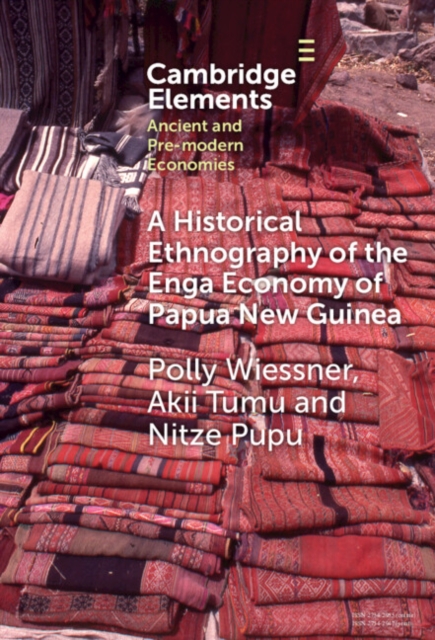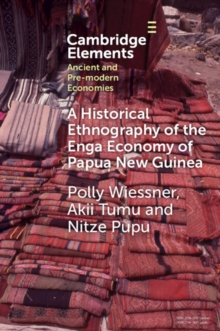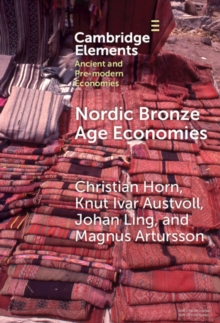
A Historical Ethnography of the Enga Economy of Papua New Guinea Hardback
by Polly (Arizona State University) Wiessner, Akii (Enga Taake Anda Tradition and Tradition Centre) Tumu, Nitze (Enga Taake Anda Tradition and Tradition Centre) Pupu
Part of the Elements in Ancient and Pre-modern Economies series
Hardback
Description
The question addressed in this Element is: What happens to a society when, in the absence of influence from foreign populations, constraints are released by a new crop making possible significant surplus production?
We will draw on the historical traditions of 110 tribes of the Enga of Papua New Guinea recorded over a decade to document the changes that occurred in response to the potential for surplus production after the arrival of the sweet potato some 350 years prior to contact with Europeans.
Economic change alone does not restructure a society nor build the social and political scaffolding for new institutions.
In response to rapid change, the Enga drew on rituals that altered norms and values and resolved cultural contradictions that inhibited cooperation to bring about complexity rather than chaos.
The end result was the development of one of the largest known ceremonial exchange systems prior to state formation.
Information
-
Pre-Order
- Format:Hardback
- Pages:75 pages, Worked examples or Exercises
- Publisher:Cambridge University Press
- Publication Date:31/05/2024
- Category:
- ISBN:9781009485951
Information
-
Pre-Order
- Format:Hardback
- Pages:75 pages, Worked examples or Exercises
- Publisher:Cambridge University Press
- Publication Date:31/05/2024
- Category:
- ISBN:9781009485951










